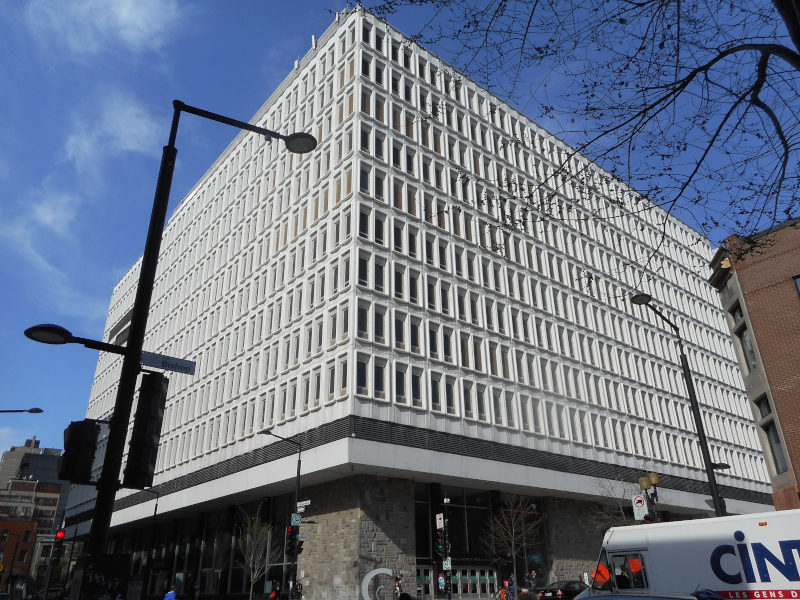When Miriam Roland graduated from Stanford University in 1951, it was an optimistic postwar era. Male graduates did not worry about whether they would get a job, but which one they would accept, she said.
The situation was quite different for young women of her generation, even those who received an education from prestigious universities.
“Society expected women to marry, become housewives and, as the magazines advised, look pretty when their husbands came home from work,” Roland said in her address at the Concordia University faculty of arts and sciences’ fall convocation.
She was receiving another degree that day: an honorary doctor of laws degree for her service to community.
With the chances of a professional career looking bleak, Roland, like many of her peers, became a volunteer. At first, she worked with government projects reporting on the safety of nuclear power plants and then examined how history texts depicted women and minorities.
She evolved into an activist, marching for civil rights, joining the women’s movement and protesting the Vietnam war. She remembers being among the crowd at the first big gay Pride parade in San Francisco.
READ: ISRAELI MBA STUDENTS UP AGAINST THE BEST AT CONCORDIA MEET
“I knew that my acts as an individual would not make an impact, but there is power in numbers,” she said. “It was uplifting for me to be with people who were deciding and working to make a change. Dissatisfaction is a great motivator.”
For the past 40 years, since she return to Montreal from California, Roland has been an outstanding volunteer for, supporter of and donor to Concordia.
Her message to the graduates as they embark on their lives was to not let the demands of everyday life distract them from paying attention to the issues facing the world.
“As graduates, you are looking forward to an unpredictable future. A look back, however, may encourage you to continue making progress,” she said. “Take your energy to change this wondrous world to enable people to live better lives. Don’t be complacent.”
As a child, Roland learned from her parents, Laura and Barney Aaron, that, “The same way we eat three meals a day, we give to those in need.”
Roland left Montreal for California after high school. When she returned 32 years later, she opened a private psychotherapy practice.

That was in 1978. From the window of her new home, she noticed a large white edifice across the way. Having been gone so long, she didn’t realize it was Concordia’s main downtown campus.
Days later, she enrolled in classes, was impressed by the friendly atmosphere and continued to attend events there, enjoying the opportunity to keep on learning. The relationship grew from there.
Roland was a member of the board of governors from 1992 to 2004, she also sat on the executive, advancement, communications and real estate planning committees, helping guide the university through a period of major expansion.
Over the years, Roland established lecture series, bursaries and endowments to fund special projects and students’ emergency needs.
A consciously ethical investor, she championed making a course in business ethics mandatory for all business graduates. Earlier this year, she established a perpetual fund for doctoral students in all four Concordia faculties with a $3-million donation.
She hopes that the Miriam Aaron Roland Graduate Fellowships will attract and retain the best and brightest. As she said at the time of the announcement in March, “For my legacy gift, I wanted to address what I saw as one of Concordia’s greatest needs. I wanted to help enhance this university’s reputation, because Concordia deserves it.”
As graduates, you are looking forward to an unpredictable future.
– Miriam Roland
In bestowing the honorary doctorate, Roland was cited for her philanthropy and services to educational institutions and social welfare groups in Montreal, the United States and Israel.
In her address, Roland urged graduates to recognize the skills they learned at Concordia, beyond “the facts you crammed in your head before exams.”
These include being comfortable in a diverse and inclusive environment, where “you learned to listen and communicate respectfully with those whose opinions differ from yours.”
